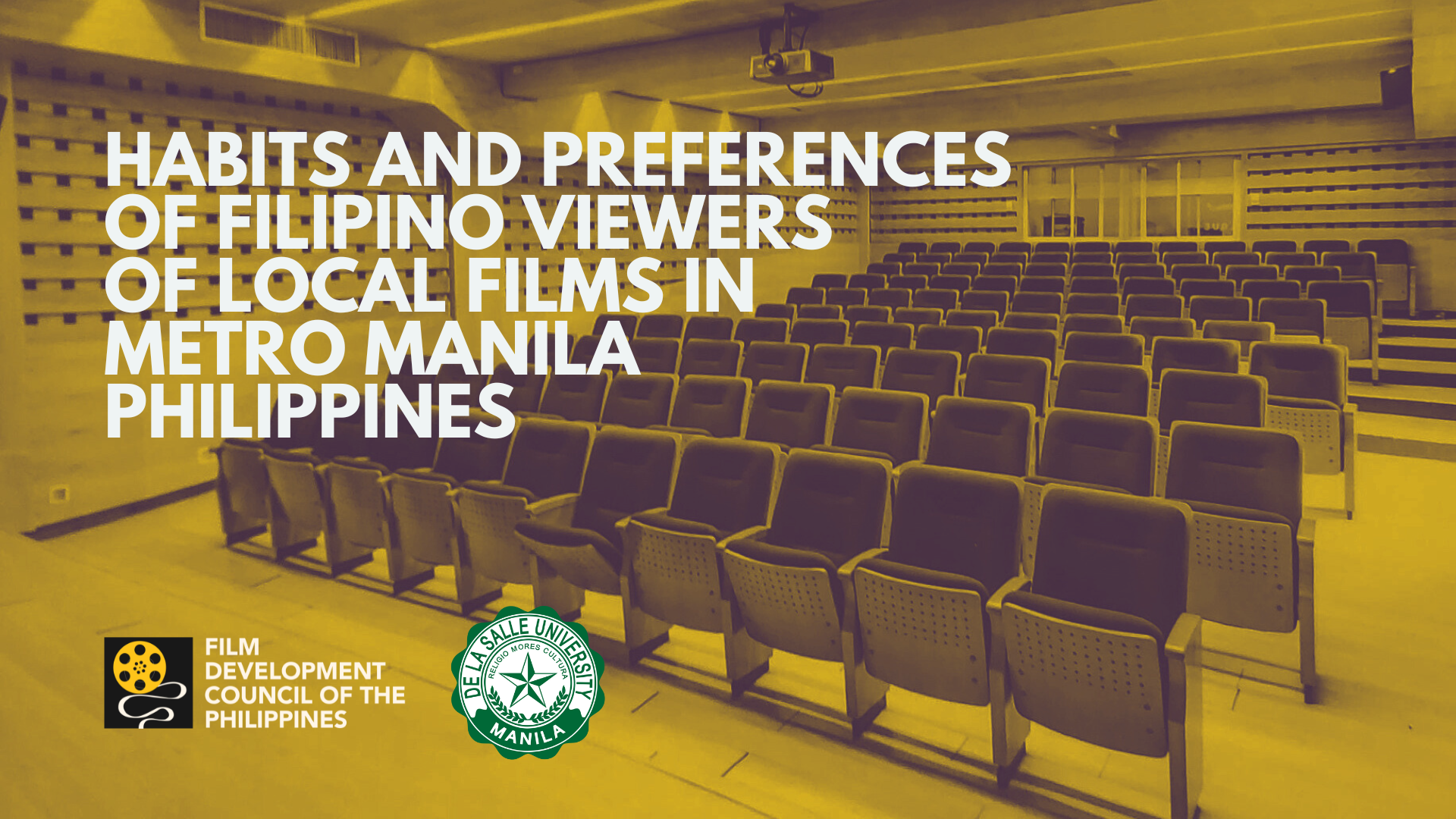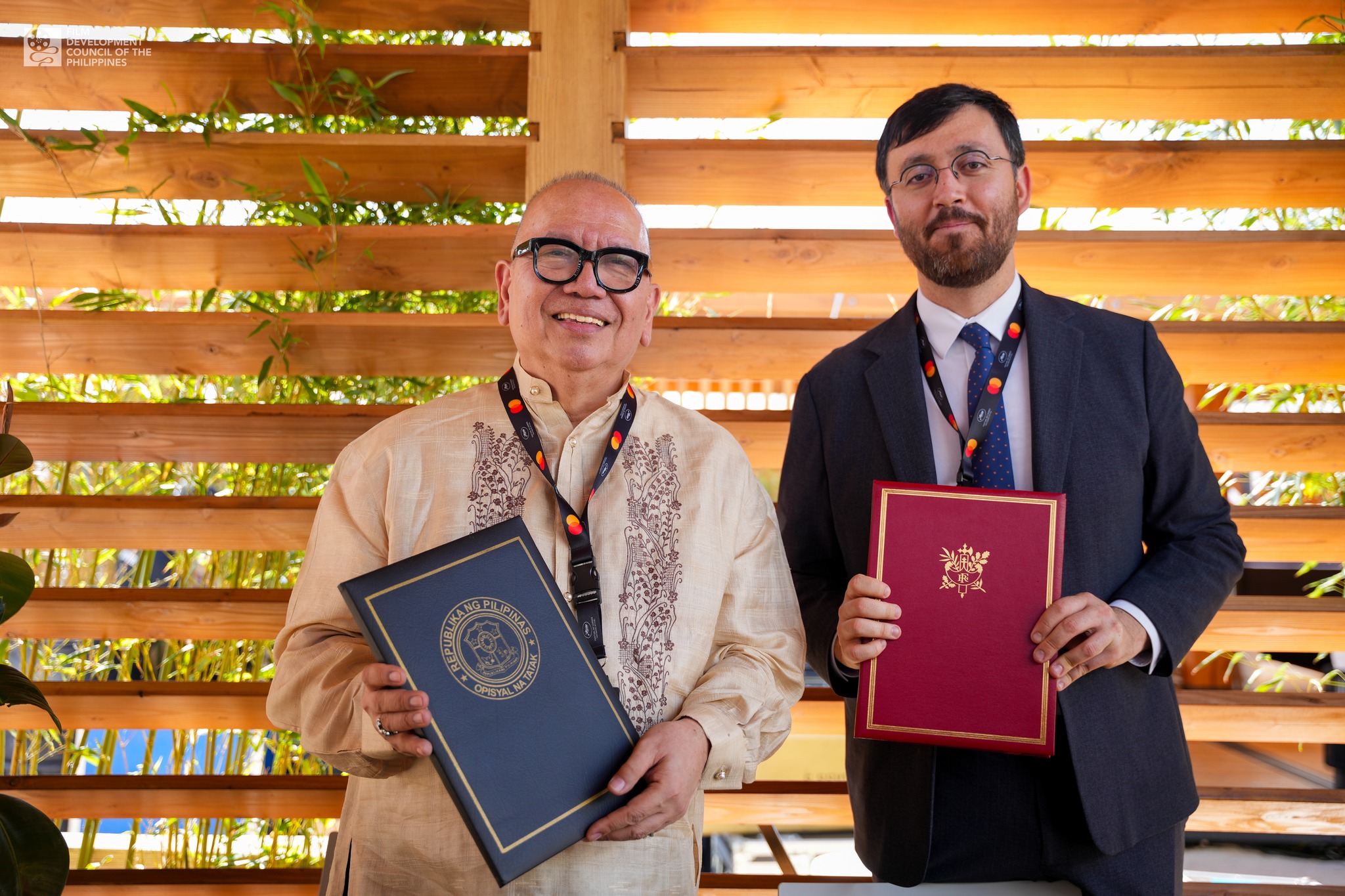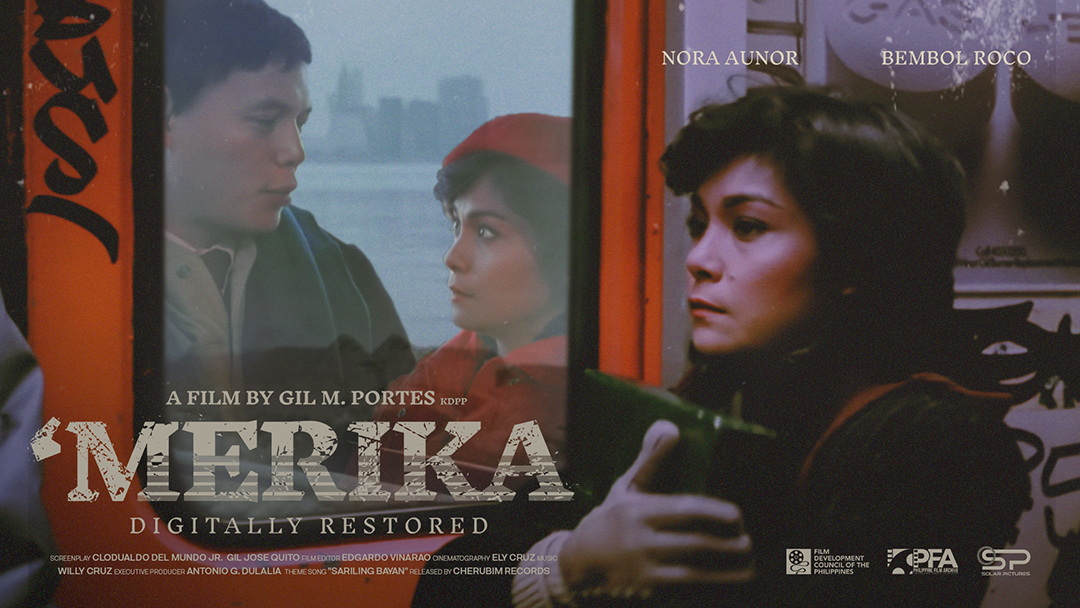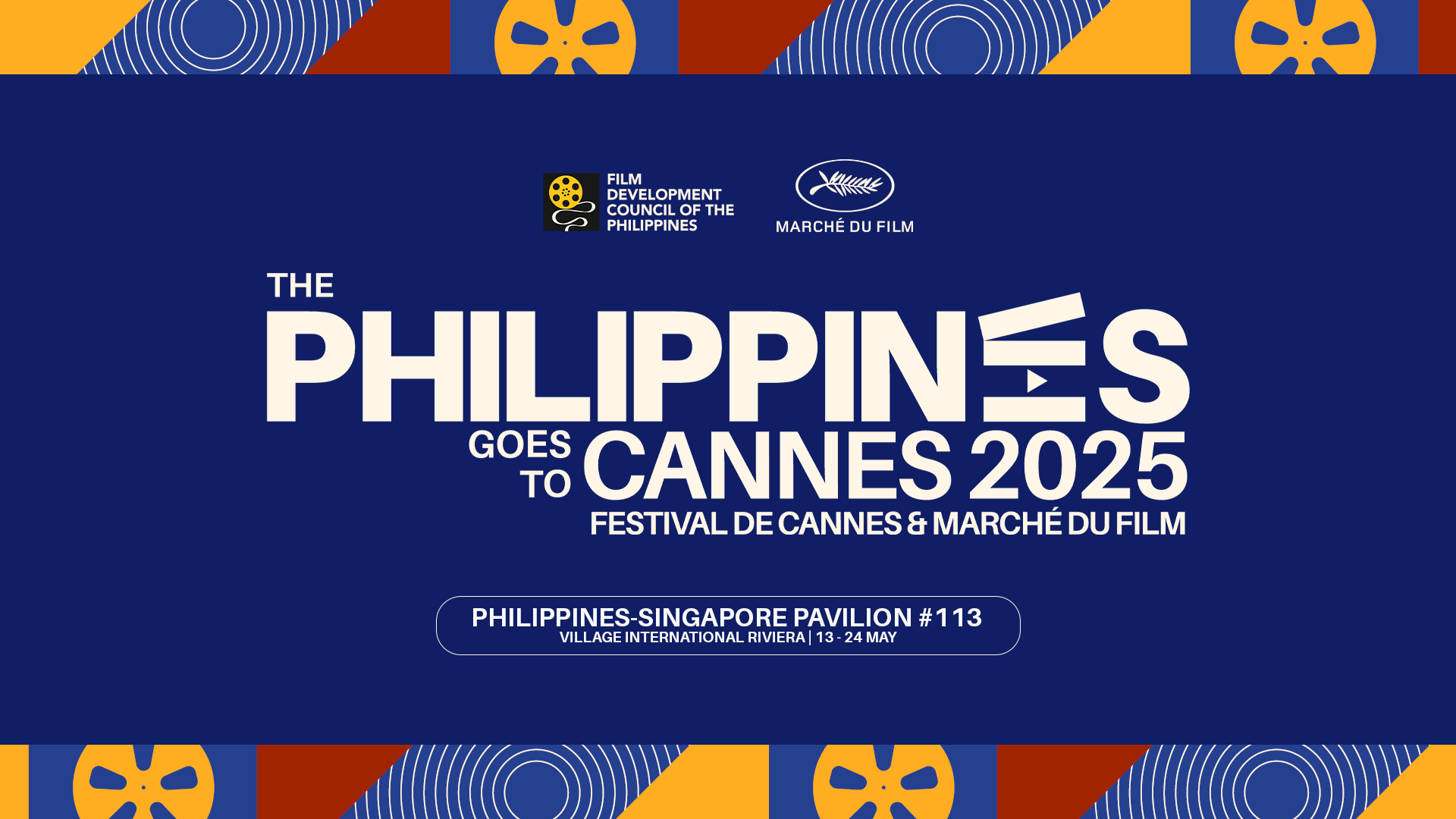FDCP highlights Top 20 accomplishments (Part 2)

Still in line with the State of the Nation Address, which President Rodrigo Duterte delivered on Monday, I continue the rundown of achievements by the Film Development Council of the Philippines (FDCP) from July 2016 to June 2020.
This list completes the Agency’s Top 20 Accomplishments led by the signing of the Department of Labor and Employment-FDCP Joint Memorandum Circular on the working conditions and occupational safety and health standards in the audiovisual (AV) production sector.
Other accomplishments are the Pista ng Pelikulang Pilipino (PPP) that has garnered over 2.6 million audiences, Philippine Film Archive (PFA) Heritage Building, PFA Film Restoration Program, and DEAR Program for displaced freelance AV workers due to Covid-19.
Rounding up last week’s Top 10 are the Philippine Cinema Pavilion in international film markets, Filipino films in streaming platforms, FilmPhilippines production incentives, Presidential Proclamation No. 622 on the Philippine Cinema Centennial celebration, and Southern Voices Film Lab (Sovolab). We continue with the second half of FDCP’s greatest accomplishments:
1. Cinema Evaluation System provides incentives to local film producers making quality films
One of the main functions of FDCP is to establish a Cinema Evaluation System wherein local films are graded based on standards of quality. Graded A films are given 100-percent amusement tax incentive from box office returns, and Graded B films receive 65-percent amusement tax incentive. This encourages filmmakers to take risks in producing quality films and gives them the capital to produce their next projects.
The Cinema Evaluation Board (CEB) evaluated 93 Graded A films and 158 Graded B films, with FDCP awarding P333,540,290 in rebates to Filipino film producers. Compared to the previous administration, there was a 43-percent increase in awarded incentives and a 40-percent rise in CEB applications for review. In over three years, there was a 50-percent spike in Graded A films, 55-percent increase in Graded B films, and 16-percent decrease in not graded films.
2. Collaborating with PH Embassies for Filipino film festivals and working with foreign embassies in the country for world cinema events
Through the Philippine Embassies Assistance Program (PEAP) of the International Relations Division (IRD), Philippine posts around the world are able to hold Filipino film festivals that feature classics, indies, and blockbusters.
PEAP aims to encourage Philippine embassies and consulates to organize film-related cultural activities so that overseas Pinoys and other nationalities can discover and appreciate Philippine Cinema.
Our recent partnerships were in celebration of One Hundred Years of Philippine Cinema: Festival del Cinema Filippino in Italia with Ambassador Domingo Nolasco and the Philippine Embassy in Rome; Philippines as the Spotlight Country in the 22nd Guanajuato International Film Festival with Ambassador Demetrio Tuason and the Philippine Embassy in Mexico; SINE, Cinema das Filipinas with Ambassador Celia Anna “Cookie” Feria and the Philippine Embassy in Portugal; and the inaugural Philippine Film Festival with Ambassador Joseph del Mar Yap and the Philippine Embassy in Singapore.
Another IRD project is the Film Cultural Exchange Program (FCEP). To strengthen bilateral relations and widen the Filipinos’ appreciation for world cinema, FDCP has partnered with foreign embassies in the country for the conduct of over 78 film festivals and events, including Japan Film Week, Hungarian Film Festival, Cine Europa, and International Silent Film Festival.
3. Festival Development Assistance Program (FDAP) supports regional film festivals to champion indigenous voices
I found regional cinema as that powerful bridge between communities and cultures within the country that considered differences as something to celebrate rather than discourage. Through the different dialects and people, this kind of cinema served not only to the whole fabric of Philippine Cinema but, more so, has become integral to its entirety.
To develop diverse narratives across the regions, the FDAP has supported 21 regional film festivals. In Luzon, these are CineKabalen (Pampanga), Pasale Film Festival (Naga City), Sineliksik Bulacan Docufest (Bulacan), PeliKultura: The Calabarzon Film Festival (Calabarzon), and Urduja Film Festival (Pangasinan) while in Visayas, these are Cebu International Film Festival, Binasaya Film Festival (Cebu), Cine Kasimanwa: Western Visayas Film Festival (Iloilo), Sine Negrense: The Negros Island Film Festival (Bacolod City), and Cinema Rehiyon and Lutas Film Festival in Dumaguete City.
In Mindanao, the FDAP-supported film fests are Mindanao Film Festival, Sandaan Sa Minadanao, Davao Ngilngig Film Festival, SineBugsay: Caraga Region’s Film Festival, Nabunturan Independent Film Exhibition (NABIFILMEX), Cine Animo (Ozamiz City), Cine de Oro Film Festival (Cagayan de Oro), Cinemagis Digital Short Film Festival (Northern Mindanao), Festival de Cine Paz Mindanao (Zamboanga), and Salamindanaw Asian Film Festival (General Santos City).
In recognizing the vital role of these festivals to discover more voices from the communities, we ensure constant engagement with film festival directors who serve as catalysts to sustain annual efforts for their communities.
4. Cinematheque Centres and Cine Lokal boost the film scene
More Cinematheques were put up in support of the government’s “Build, Build, Build” program. Through the Distribution and Exhibition Division (DED), FDCP operates Cinematheque Centres in Manila, Iloilo City, Davao City, Zamboanga City, Nabunturan in Compostela Valley, and Negros Occidental. Over 300 film events were held in these Cinematheques.
Another DED initiative is Cine Lokal, which was inaugurated with President Duterte as the guest of honor on April 19, 2017. It is a partnership with SM Cinemas that dedicated eight theaters to showcase 107 films from FDCP-curated content composed of indies, classics, regional films, and award-winning works. Additionally, Cine Lokal supported five national film festivals.
5. Staunch support for the animation sector
Since 2017, FDCP has extended support to the animation sector as it was officially included in the Agency’s priority programs. The goal is not just to sustain the already thriving service sector but also to open up opportunities for original Intellectual Property (IP) creation.
FDCP and the Department of Trade and Industry have participated in various animation film markets and film festivals to expand the reach of the animation sector and foster collaboration with international co-producers.
In February 2019, FDCP and MIFA Pitches brought to Manila the Animation du Monde of Annecy International Animated Film Festival, known as the “Cannes Film Festival of Animation” as it is one of the most prestigious festivals and marketplaces for animated content. Animation du Monde aims to offer funding, work collaborations, and co-production deals to young talents. For this year’s Annecy Online Film Festival, two Filipino projects made it to Animation du Monde and Focus on South-East Asia @ MIFA 2020.
The Agency has also supported Filipino projects in the Bridging the Gap Animation Lab in Spain, an FDCP partner program. Moreover, FDCP is a long-time collaborator with the Animation Council of the Philippines, Inc. and its Animahenasyon PH: The Philippine Animation Festival.
6. FDCP Film School elevates filmmaking in the regions
Remaining true to its goal of helping regional cinema flourish and making filmmaking more accessible in the regions, the Agency has the FDCP Film School: The Future of Philippine Cinema.
The FDCP Film School encourages new film talents, holds skill advancement training for professionals, and facilitates platforms for discussions on the film industry. Since 2016, more than 5,000 aspiring filmmakers and students have attended the FDCP Film School’s 26 faculty symposiums in 26 cities and municipalities, and 38 workshops and lectures in 16 regions all over the Philippines in partnership with local government units.
7. Inter-government agency partnerships promote PH Cinema
FDCP, through its FilmPhilippines Program, worked with the Department of Tourism for the Let’s Create Together campaign that promotes the Philippines as a filming destination. FDCP also collaborated with the National Historical Commission of the Philippines for SineSaysay Documentary Film Lab and Showcase, and the Department of the Interior and Local Government and Philippine Commission on Women (PCW) for CineMarya Women’s Film Festival.
CineJuana Film Festival, which focused on Violence Against Women issues, was another FDCP-PCW collaboration. Partnerships were also done with the Optical Media Board for the exemption of films for overseas cultural exhibitions, the MTRCB to grant a 70-percent discount in application fees of independent filmmakers, and the National Youth Commission for Sine Kabataan Film Festival which runs alongside the PPP. Sine Kabataan features short films, done by filmmakers aged 18 to 30 that tackle issues relevant to the youth.
8. Creation of entire film industry database through the National Registry
Launched in 2017, the National Registry is a database of active members of the various sectors of the industry duly recognized by FDCP. The Agency uses the National Registry to monitor and protect workers nationwide, provide processing support for social welfare services, and give updates on workshops and job opportunities in local and international productions. At least 5,600 workers and 230 companies have registered.
9. Holding of Film Industry Conference, FDCP Project Market, and First Cut Lab in Manila, plus SEAFIC participation
Since October 2017, FDCP has hosted the Film Industry Conference to strengthen Filipino filmmaking. It had mentors and speakers from A-list international film festivals (Cannes, Berlin, Venice, and Locarno), streamers like Netflix and iflix, and the Motion Picture Association. In 2019, the FDCP Project Market was added.
Also in 2019, FDCP brought in for the first time the Europe-based First Cut International Lab, a project development and editing lab that featured international mentors to guide local filmmakers in producing globally competitive films.
Meanwhile, FDCP has supported the Southeast Asia Fiction Film Lab (Seafic), an intensive script and development lab, since its founding in 2016. Petersen Vargas’ “Some Nights I Feel Like Walking” won the Seafic Award and Seafic-HAF (Hong Kong-Asia Film Financing Forum) Award in 2019. Zurich Chan’s “Cangrejos,” a Sovolab project, was selected for the 4th Seafic. Raymond Phathanavirangoon, Seafic Executive Director, was a Sovolab mentor in 2019.
10. Memorandum Circular (MC) No. 2019-001 on the policies and guidelines of the theatrical release in Philippine cinemas
FDCP issued this MC to provide guidance to commercial theaters on the exhibition of films, for compliance. To push for Philippine Cinema’s growth, policies that apply to local and foreign films were introduced: moving the nationwide theatrical release from Wednesday to Friday to accommodate more moviegoers during the weekend and giving each film a minimum run-length of seven days with a “full screen” guarantee for the first three days.
The Cinema Exhibitors Association of the Philippines (CEAP) filed a case before the Quezon City Regional Trial Court (RTC) on July 5, 2019 to have the MC declared as invalid and unconstitutional. FDCP, which filed for a motion to dismiss the case, is waiting for the RTC’s ruling.
FDCP maintains that the MC is in line with the Agency’s objectives to address the theatrical distribution of films in the country and create balanced and transparent guidelines beneficial to stakeholders. Filmmakers have embraced the MC as necessary for Philippine Cinema to thrive by equalizing the economics of filmmaking.
Notes from the Chair is part of the Arts Awake section of The Sunday Times Magazine published by The Manila Times. Click HERE to view the article on The Manila Times website.





